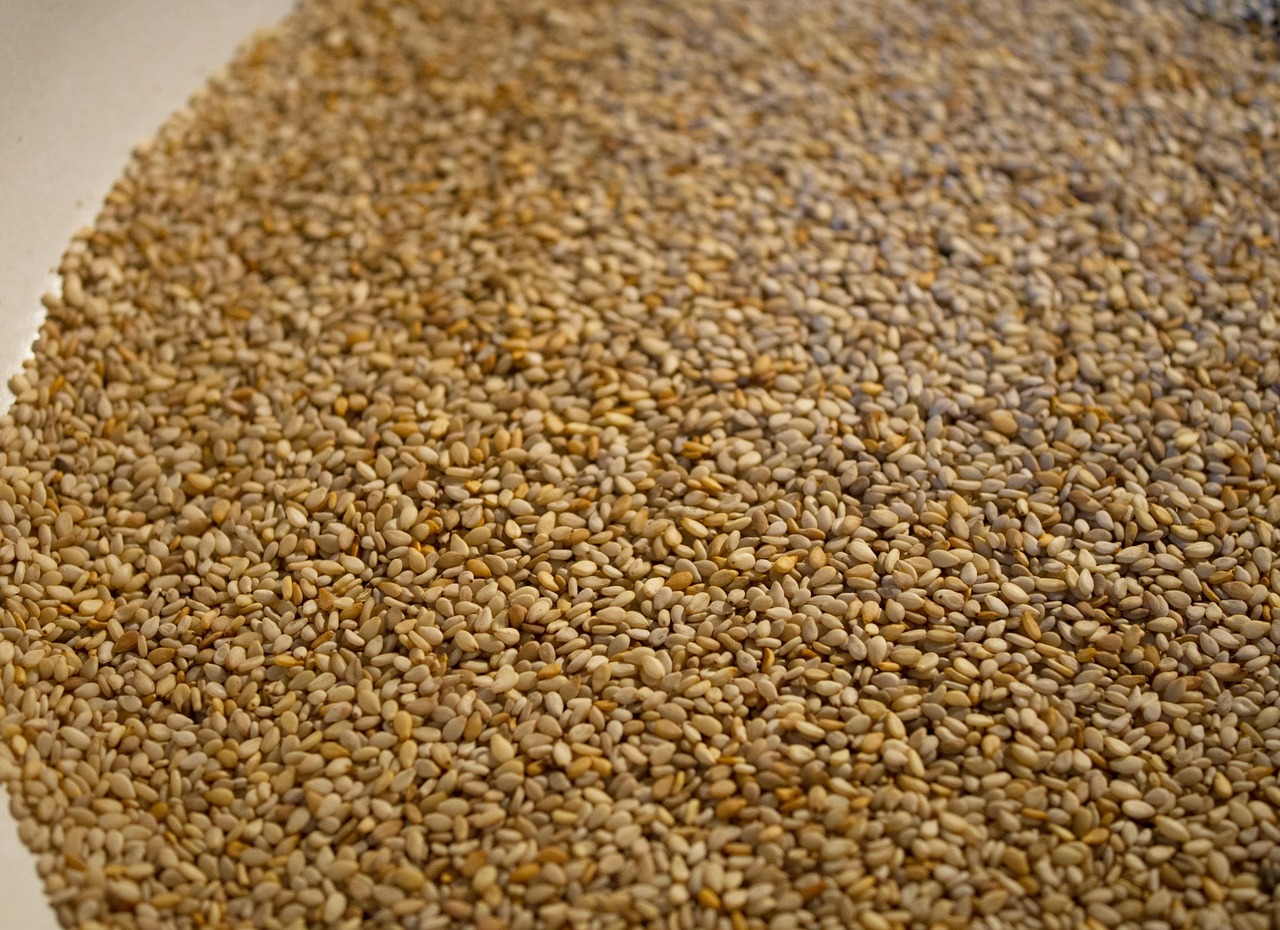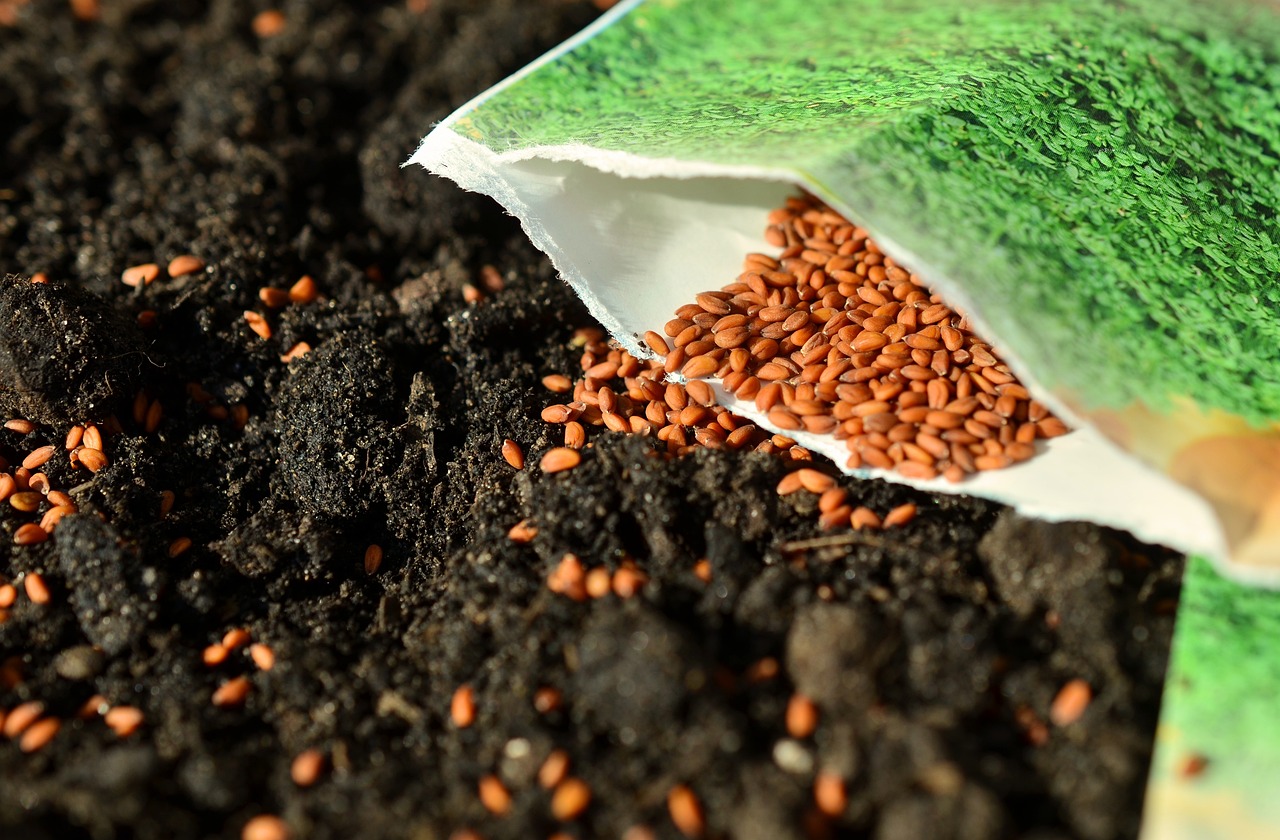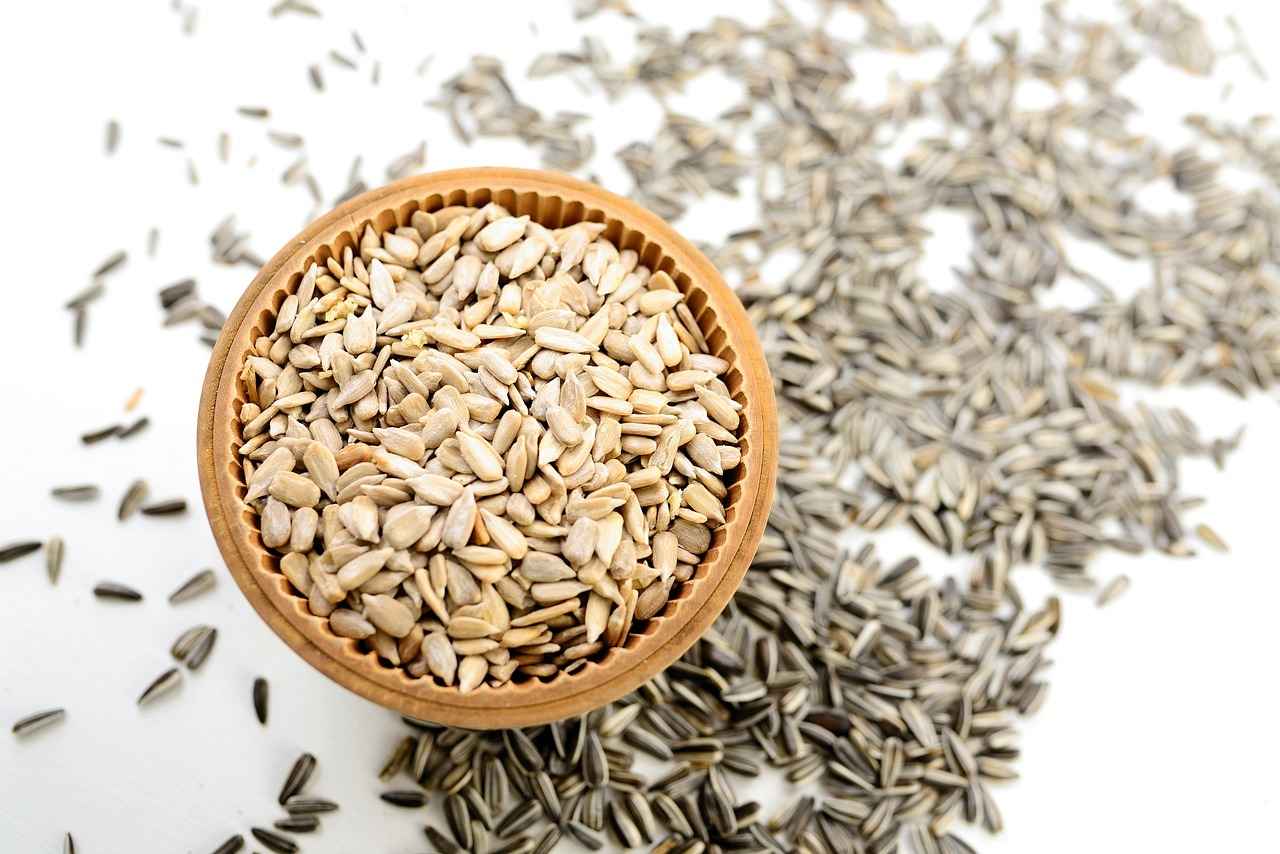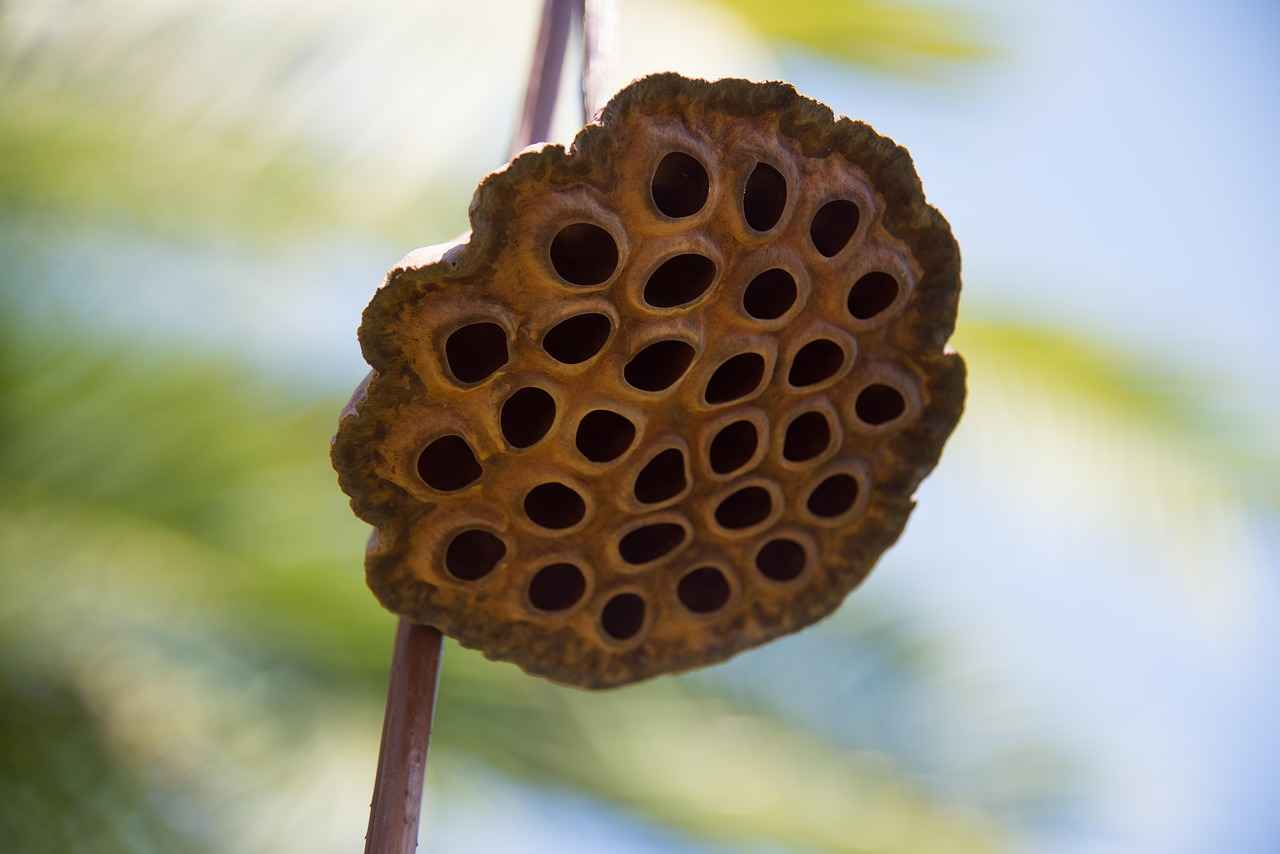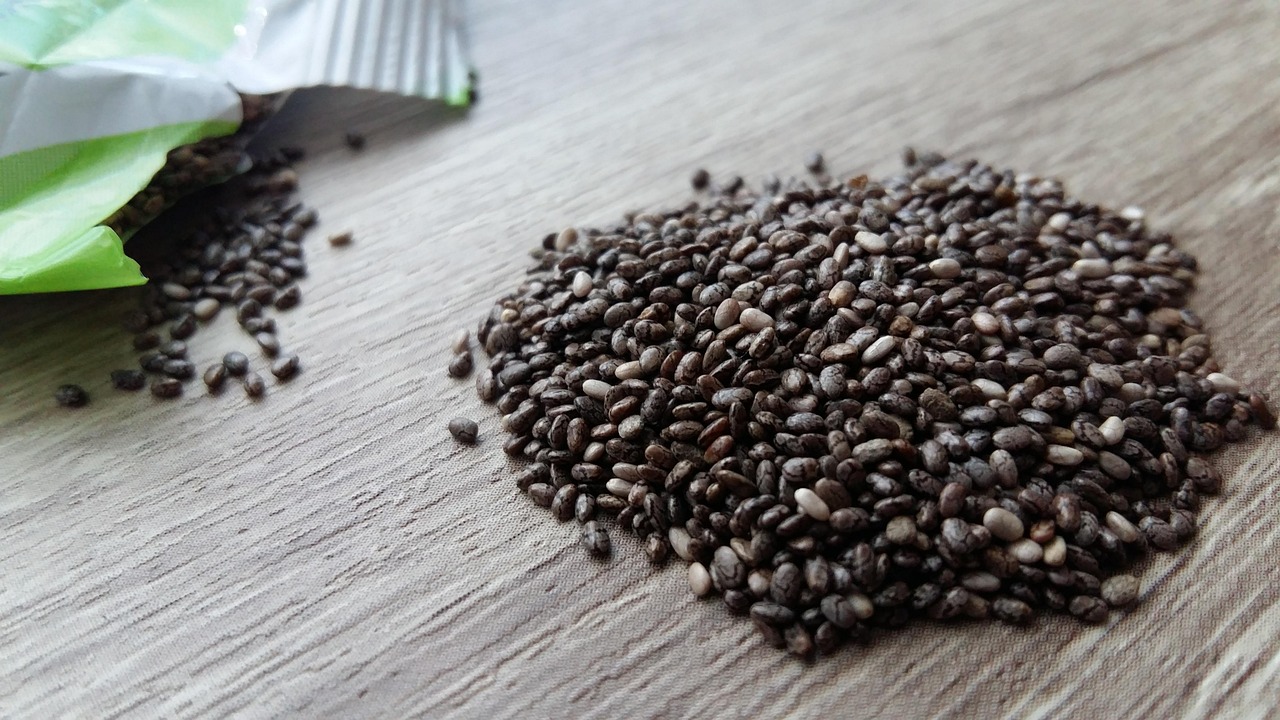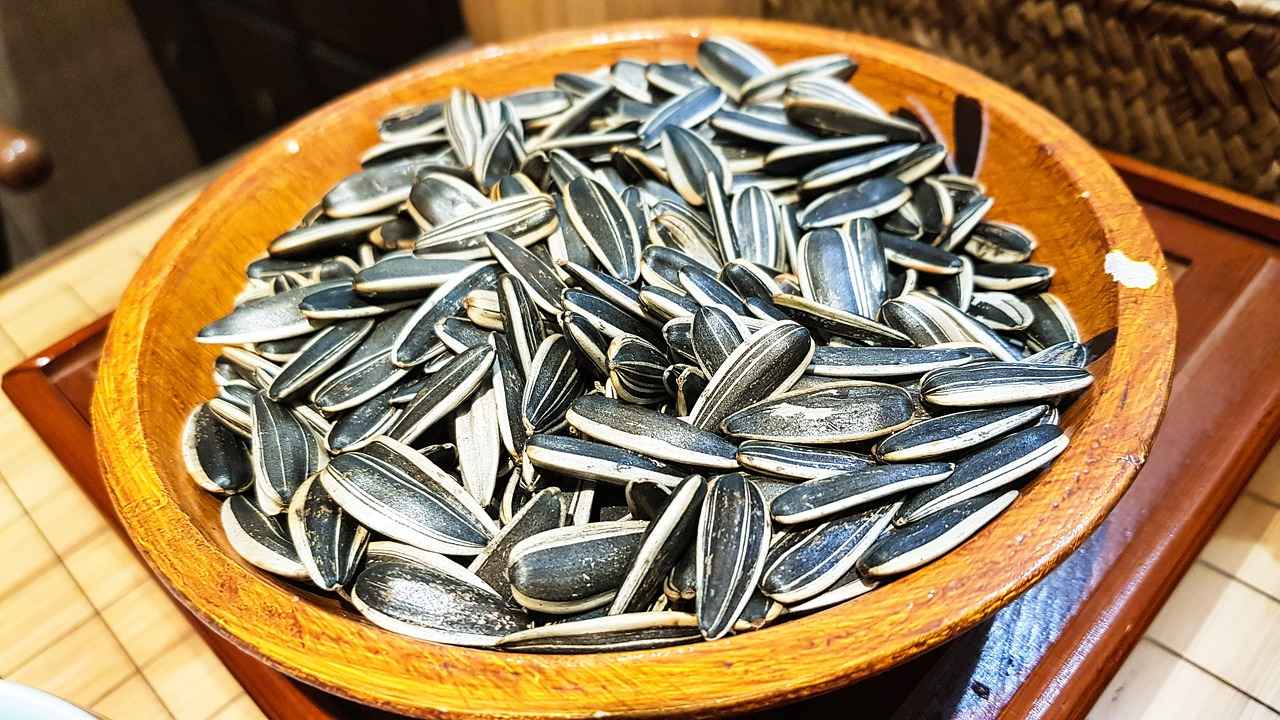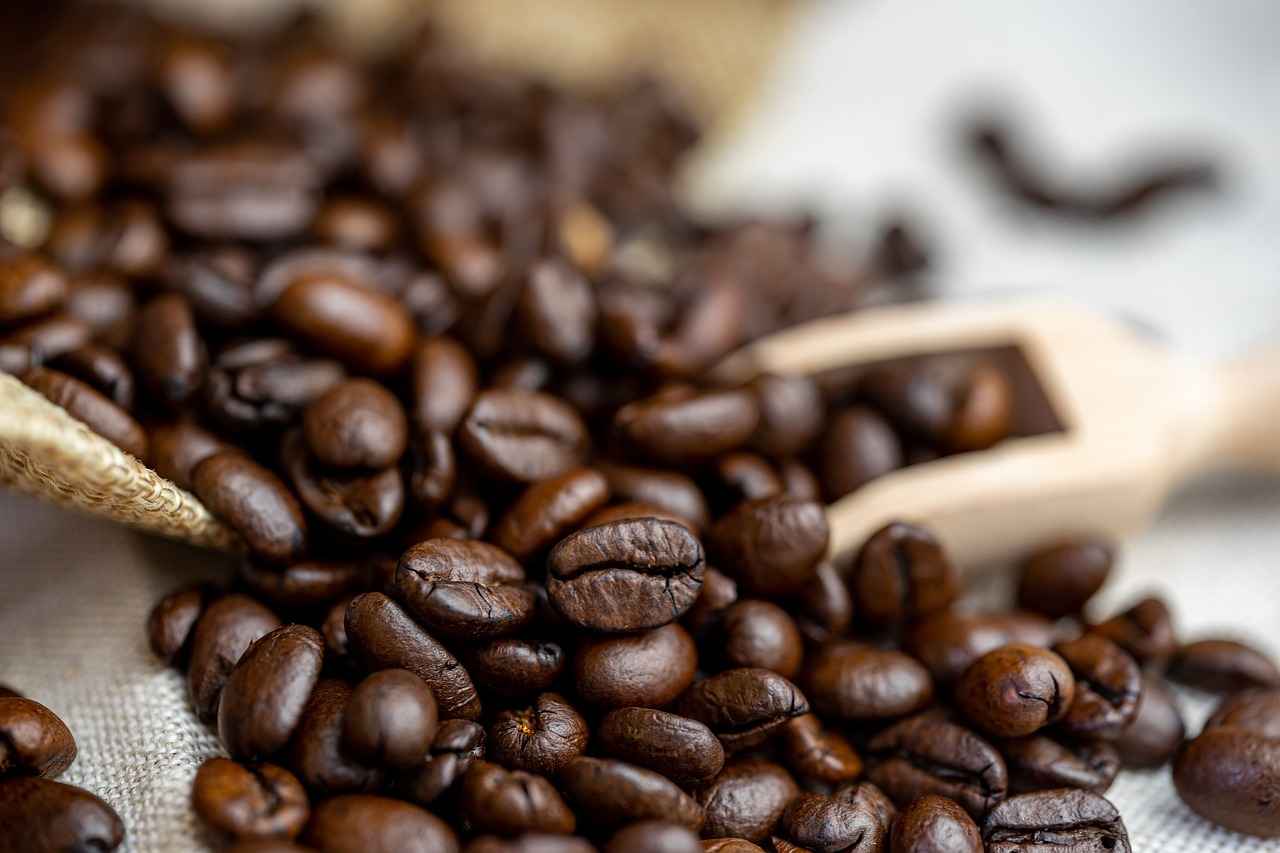This article will explore various options for purchasing chia seeds, including online and local stores, while providing insights into the best practices for selecting high-quality seeds.
What Are Chia Seeds and Why Are They Popular?
Chia seeds, derived from the Salvia hispanica plant, have surged in popularity due to their impressive health benefits. Rich in omega-3 fatty acids, fiber, and antioxidants, these tiny seeds are often hailed as a superfood. Their versatility allows them to be easily incorporated into various dishes, making them a favorite among health enthusiasts.
Where to Buy Chia Seeds Online?
Online shopping has revolutionized the way we purchase food products, offering convenience and an extensive selection of chia seeds. Here are some popular options:
- Amazon: As a comprehensive marketplace, Amazon features a wide range of chia seed brands, from organic to flavored varieties. User reviews and ratings can significantly aid in your selection process.
- Health Food Websites: Websites dedicated to health foods often provide specialty chia seeds that may include unique blends or added nutrients, catering to specific dietary needs.
Local Grocery Stores: A Convenient Option
Local grocery stores are increasingly stocking chia seeds in their health food aisles. This allows you to inspect the packaging and check for freshness before making a purchase. Here are some notable retailers:
- Whole Foods: Known for its extensive selection of organic products, Whole Foods Market offers various brands and types of chia seeds, ensuring high-quality options.
- Big-Box Retailers: Stores like Walmart and Costco often provide chia seeds at competitive prices, making bulk purchases an economical choice for regular consumers.
Farmers’ Markets: Fresh and Local Options
Visiting farmers’ markets can be an excellent way to find locally sourced chia seeds. Engaging with local vendors not only supports the community but also provides insight into the farming practices behind the products.
Specialty Health Stores: Expert Guidance
Specialty health stores often employ knowledgeable staff who can offer personalized recommendations on chia seed brands and preparation methods. This expert guidance can enhance your shopping experience and help you make informed choices.
Choosing the Right Type of Chia Seeds
When purchasing chia seeds, understanding the different types available is crucial. Here are some considerations:
- Organic vs. Non-Organic: Organic chia seeds are cultivated without synthetic pesticides or fertilizers, appealing to health-conscious consumers. While non-organic options may be more affordable, they could contain pesticide residues.
- Whole vs. Ground Chia Seeds: Whole chia seeds provide a crunchy texture, while ground seeds may be easier to digest and incorporate into recipes. Your choice may depend on personal preference and dietary needs.
How to Ensure You’re Buying Quality Chia Seeds?
To ensure you’re purchasing high-quality chia seeds, consider the following tips:
- Check the expiration date to ensure freshness.
- Look for certifications such as organic or non-GMO.
- Read customer reviews to gauge the quality of the product.
By understanding where to buy chia seeds and what to look for, you can make informed decisions that align with your health goals. Whether you opt for online shopping or a local store, the key is to prioritize quality and freshness.

What Are Chia Seeds and Why Are They Popular?
Chia seeds, derived from the Salvia hispanica plant, have surged in popularity in recent years, primarily due to their impressive nutritional profile. These tiny seeds, which were a staple in the ancient diets of the Aztecs and Mayans, are now recognized for their multitude of health benefits, making them a favored addition to modern diets.
Chia seeds are particularly renowned for their high content of omega-3 fatty acids, which play a crucial role in heart health. In addition to omega-3s, these seeds are an excellent source of dietary fiber, providing about 11 grams per ounce, which can aid in digestion and promote a feeling of fullness.
- Antioxidants: Chia seeds are rich in antioxidants, which help combat oxidative stress and inflammation in the body.
- Protein: They contain a significant amount of protein, making them a great plant-based protein source for vegetarians and vegans.
- Minerals: Chia seeds are packed with essential minerals such as calcium, magnesium, and phosphorus, contributing to overall health.
The health benefits of chia seeds extend beyond their nutritional content. Regular consumption may lead to several positive health outcomes:
- Heart Health: The omega-3 fatty acids found in chia seeds can help reduce inflammation and lower cholesterol levels.
- Weight Management: Their high fiber content promotes satiety, which can assist in weight control and management.
- Blood Sugar Regulation: Chia seeds may help stabilize blood sugar levels, making them a smart choice for those with diabetes.
The term superfood is often used to describe foods that are nutritionally dense and beneficial to health. Chia seeds fit this description perfectly for several reasons:
- Versatility: They can be easily incorporated into various dishes, from smoothies to baked goods, making them a convenient addition to any diet.
- Easy Preparation: Chia seeds can be consumed whole, soaked, or ground, allowing for flexibility in how they are prepared and enjoyed.
- Sustainability: Chia seeds are often grown in environmentally friendly conditions, appealing to eco-conscious consumers.
Incorporating chia seeds into your diet is simple and can enhance the nutritional value of your meals:
- Add them to smoothies for a nutrient boost.
- Use chia seeds as an egg substitute in vegan baking.
- Sprinkle them on salads or yogurt for added texture and nutrition.
- Make chia pudding by soaking them in milk or a milk alternative overnight.
With their impressive health benefits and versatility in the kitchen, it’s no wonder that chia seeds have become a popular choice among health enthusiasts. Understanding their nutritional value and how to incorporate them into your meals can help you make informed decisions about your diet.

Where to Buy Chia Seeds Online
When it comes to purchasing chia seeds, the internet offers a plethora of options that cater to various preferences and budgets. Online shopping not only provides convenience but also an extensive selection of brands and products. This guide aims to help you navigate the online marketplace effectively.
Online shopping for chia seeds is increasingly popular due to its convenience and accessibility. You can browse different brands, read customer reviews, and compare prices from the comfort of your home. Additionally, many e-commerce platforms allow for bulk purchases, which can lead to significant savings.
- Amazon: As one of the largest online marketplaces, Amazon offers a vast selection of chia seed brands. You can find everything from organic to flavored varieties. The user reviews and ratings are invaluable for making informed decisions.
- Health Food Websites: Websites specializing in health foods often provide unique options, including organic and specialty chia seeds. These platforms may carry blends that cater to specific dietary needs, ensuring you find the right product for your lifestyle.
- Bulk Food Stores: Websites like Thrive Market and Boxed offer bulk purchasing options, which can be ideal for regular users. These platforms often have competitive pricing and a range of brands to choose from.
One of the primary advantages of buying chia seeds online is the ability to compare prices across different platforms easily. Many e-commerce sites offer discounts or subscription services that can further reduce costs. Additionally, shopping online allows you to read detailed product descriptions and ingredient lists, helping you make informed choices.
When purchasing chia seeds online, consider the following factors:
- Brand Reputation: Research brands to ensure they are reputable and offer high-quality products.
- Product Reviews: Customer feedback can provide insights into taste, texture, and overall satisfaction.
- Packaging: Look for products that are well-packaged to ensure freshness and prevent contamination.
- Certifications: Organic certifications can indicate that the seeds are grown without harmful pesticides or fertilizers.
To ensure you are purchasing high-quality chia seeds, always check for third-party testing and certifications. Reputable brands often provide information about their sourcing and production processes. Additionally, consider the expiration date on the packaging to ensure freshness.
Before making a purchase, familiarize yourself with the return and exchange policies of the online store. This can be particularly important if you receive a product that does not meet your expectations. Many reputable online retailers offer satisfaction guarantees or easy return processes.
In summary, online shopping for chia seeds presents a convenient and efficient way to access a wide variety of products. By considering the factors mentioned above and utilizing trusted platforms, you can find high-quality chia seeds that meet your dietary needs.
Amazon: A Comprehensive Marketplace
Amazon has established itself as a leading e-commerce platform, offering a vast array of products, including chia seeds. With numerous sellers providing various options, it’s essential to understand how to navigate this marketplace effectively.
Shopping for chia seeds on Amazon is not just convenient; it also presents buyers with a wide range of choices. From organic to flavored chia seeds, the platform caters to diverse preferences and dietary needs. This variety allows consumers to explore different brands and types, ensuring that they find the perfect fit for their health goals.
One of the most valuable features of shopping on Amazon is the user review system. Before making a purchase, it’s wise to check the ratings and comments from previous buyers. These reviews often provide insights into the product’s quality, taste, and effectiveness. Look for products with a high number of positive reviews to increase the likelihood of a satisfying purchase.
Amazon offers chia seeds in various forms, including:
- Organic Chia Seeds: Grown without synthetic pesticides, these seeds are favored by health-conscious consumers.
- Flavored Chia Seeds: Available in various flavors, these seeds can add a unique twist to smoothies and baked goods.
- Bulk Options: For regular users, bulk purchases can be more economical, reducing the cost per serving.
When selecting chia seeds on Amazon, consider the following factors:
- Brand Reputation: Opt for well-known brands that have established credibility in the health food market.
- Packaging: Look for products that are well-packaged to ensure freshness and prevent contamination.
- Price Comparison: Compare prices across different sellers to ensure you are getting the best deal.
Amazon frequently runs promotions and discounts on various products, including chia seeds. Keep an eye out for:
- Subscribe & Save: This program allows you to save money on recurring orders, making it a cost-effective choice for regular users.
- Lightning Deals: Limited-time offers can provide significant savings, so it’s worth checking back regularly.
Another advantage of purchasing chia seeds from Amazon is their robust customer service. If a product does not meet your expectations, Amazon’s return policy typically allows for easy returns. Always review the specific return policy of the seller before completing your purchase.
With its extensive selection and user-friendly interface, Amazon is a fantastic option for purchasing chia seeds. By leveraging the power of customer reviews and ratings, you can make informed decisions that align with your health goals. Whether you’re looking for organic options or unique flavored varieties, Amazon’s marketplace has something for everyone.
Health Food Websites: Specialty Options
When it comes to purchasing chia seeds, health food websites stand out as exceptional resources. These platforms not only provide a variety of chia seed options but also cater to specific dietary preferences and health goals. In this section, we will delve deeper into the benefits of shopping for chia seeds online, the unique offerings available, and how to choose the best products for your needs.
Health food websites often specialize in organic and specialty chia seeds, making them a go-to destination for health-conscious consumers. These platforms typically offer:
- Organic Options: Many health food websites provide chia seeds that are certified organic, ensuring that they are free from synthetic pesticides and fertilizers.
- Specialty Blends: Some sites offer unique blends of chia seeds with added nutrients, such as superfoods or flavorings, catering to specific dietary needs.
- Bulk Purchasing: Buying in bulk can be more economical and ensures you have a steady supply of these nutritious seeds.
Health food websites often feature a range of chia seed products that you might not find in local stores. These include:
- Flavored Chia Seeds: Some brands infuse chia seeds with natural flavors, making them an exciting addition to smoothies, oatmeal, or baked goods.
- Chia Seed Meal: Ground chia seeds are easier to digest and can be used in various recipes, from pancakes to protein bars.
- Chia Seed Snacks: Innovative snack options, such as chia seed bars or crackers, provide a convenient way to incorporate these seeds into your diet.
When shopping on health food websites, it’s essential to know how to select high-quality chia seeds. Here are some tips:
- Check for Certifications: Look for products that are certified organic or non-GMO to ensure quality.
- Read Customer Reviews: User reviews can provide insights into the taste, texture, and overall satisfaction with the product.
- Examine Packaging: Quality packaging can indicate freshness. Look for resealable bags or containers that protect the seeds from light and moisture.
Health food websites often cater to various dietary requirements, making it easier to find chia seeds that fit your lifestyle. Whether you are vegan, gluten-free, or looking for keto-friendly options, these platforms can help you find the right products.
In summary, health food websites offer a plethora of options for purchasing chia seeds, from organic varieties to specialty blends. The convenience of online shopping, combined with the ability to access a wide range of products tailored to specific dietary needs, makes these platforms an excellent choice for health-conscious consumers. By selecting high-quality chia seeds, you can enjoy their numerous health benefits and incorporate them easily into your daily diet.

Local Grocery Stores: A Convenient Option
When it comes to purchasing chia seeds, many consumers prefer the convenience of local grocery stores. These stores often feature a dedicated health food aisle where shoppers can easily find chia seeds along with other nutritious options. This section will delve into the advantages of buying chia seeds from local grocery stores, highlighting the benefits of inspecting products firsthand and ensuring freshness.
Local grocery stores provide a unique shopping experience compared to online options. One of the most significant advantages is the ability to inspect packaging and check for freshness before making a purchase. This tactile experience allows consumers to feel confident about the quality of their chia seeds.
- Immediate Availability: Unlike online shopping, which may involve waiting for delivery, local stores offer instant access to chia seeds.
- Freshness Assurance: Shoppers can examine the expiration dates and packaging integrity, ensuring they select the freshest products available.
- Variety of Options: Many grocery stores stock different brands and types of chia seeds, allowing consumers to choose based on their preferences.
Most grocery stores have a health food section that typically includes chia seeds. Here are some common places to look:
- Health Food Aisles: This is the primary location for chia seeds, often alongside other superfoods and health supplements.
- Baking Aisles: Some stores place chia seeds in the baking section, as they are popular for adding nutritional value to baked goods.
- Bulk Bins: Many stores offer chia seeds in bulk, allowing shoppers to buy the exact amount they need while reducing packaging waste.
When selecting chia seeds at your local grocery store, consider the following factors:
- Organic Certification: Opt for organic chia seeds whenever possible, as they are grown without harmful pesticides and chemicals.
- Seed Color: Chia seeds come in two main varieties—black and white. Both types offer similar nutritional benefits, but personal preference may dictate your choice.
- Packaging: Look for resealable bags or containers that protect the seeds from moisture and light, which can degrade their quality.
Another benefit of shopping at local grocery stores is the opportunity to engage with knowledgeable staff. Many grocery stores employ staff who are well-versed in health foods and can provide valuable insights into:
- Preparation Methods: Staff can offer tips on how to incorporate chia seeds into your diet, whether through smoothies, baking, or as a topping for yogurt.
- Brand Recommendations: They can guide you towards reputable brands that offer high-quality chia seeds, ensuring you make an informed decision.
- Dietary Considerations: If you have specific dietary needs or restrictions, store staff can help you find chia seed products that meet those requirements.
In summary, local grocery stores present a convenient and effective option for purchasing chia seeds. By allowing consumers to inspect products directly, these stores ensure that shoppers can make informed decisions based on freshness and quality. With a variety of options available and the added benefit of expert advice from store staff, buying chia seeds locally can enhance your shopping experience and support your health goals.
Whole Foods: Quality and Variety
When it comes to purchasing chia seeds, Whole Foods Market stands out as a premier destination for health-conscious consumers. Known for its commitment to organic and high-quality products, Whole Foods offers an extensive selection of chia seeds that cater to various dietary needs and preferences.
Whole Foods Market is not just a grocery store; it is a health food haven. The store prides itself on providing a wide array of organic products, and chia seeds are no exception. Customers can find both black and white chia seeds, ensuring they have options that fit their nutritional goals. The store’s focus on quality means that shoppers can trust that the chia seeds are sourced responsibly, often from reputable suppliers.
At Whole Foods, you can explore various brands of chia seeds, each offering unique benefits. Some of the popular brands include:
- Navitas Organics: Known for its nutrient-rich superfoods, Navitas offers high-quality organic chia seeds.
- Terrasoul Superfoods: This brand focuses on sustainable sourcing and offers both organic and non-GMO chia seeds.
- Bob’s Red Mill: A well-known name in the health food industry, Bob’s Red Mill provides a range of chia seed options, including bulk purchases.
When shopping for chia seeds at Whole Foods, it’s essential to look for certain indicators of quality. Here are some tips to guide your selection:
- Check the Packaging: Ensure that the packaging is sealed properly to maintain freshness.
- Look for Organic Certification: Organic chia seeds are preferred as they are free from synthetic pesticides.
- Examine Expiration Dates: Always check the expiration date to guarantee the seeds are fresh.
Chia seeds are celebrated for their numerous health benefits, making them a popular choice among health enthusiasts. They are rich in omega-3 fatty acids, fiber, and antioxidants, which contribute to heart health, digestive wellness, and overall vitality. Incorporating chia seeds into your diet can enhance your meals, whether you add them to smoothies, oatmeal, or baked goods.
Shopping at Whole Foods is not just about the products; it’s also about the experience. The staff is typically knowledgeable about the products they sell, and they can provide valuable insights into the health benefits and uses of chia seeds. Customers often appreciate the ability to ask questions and receive personalized recommendations based on their dietary preferences.
While Whole Foods is known for its high-quality products, some customers may find prices to be on the higher side compared to other retailers. However, many believe that the quality justifies the cost. Additionally, Whole Foods often runs sales and promotions, allowing savvy shoppers to stock up on their favorite chia seeds at a better price.
In summary, Whole Foods Market is a top choice for purchasing chia seeds due to its wide variety, commitment to quality, and knowledgeable staff. Whether you are a seasoned health enthusiast or new to the world of superfoods, Whole Foods provides an excellent shopping experience that caters to all your chia seed needs.
Big-Box Retailers: Affordable Choices
When it comes to purchasing chia seeds, big-box retailers like Walmart and Costco stand out as popular and affordable choices for many consumers. These stores offer a variety of options that cater to both casual users and health enthusiasts alike.
Shopping at big-box retailers can provide a range of benefits, particularly in terms of pricing and availability. These stores often have competitive prices due to their ability to buy in bulk, which translates to savings for customers. For those who regularly incorporate chia seeds into their diet, purchasing in larger quantities can lead to significant cost reductions.
At big-box retailers, you will typically find a selection of chia seeds that includes both organic and conventional options. This variety allows consumers to choose based on their dietary preferences and budget. Organic chia seeds, while slightly more expensive, are grown without synthetic pesticides or fertilizers, making them a popular choice for health-conscious shoppers.
One of the main advantages of shopping at stores like Walmart and Costco is the option to buy chia seeds in bulk. This is particularly beneficial for those who use chia seeds regularly, as bulk purchases can lead to lower prices per unit. For example, a 5-pound bag of chia seeds may cost significantly less than buying several smaller packages. Additionally, buying in bulk reduces the frequency of shopping trips, saving time and effort.
When shopping for chia seeds at big-box retailers, it’s essential to compare prices and brands. While Walmart may offer a specific brand at a lower price, Costco might have a different brand that offers better quality or more favorable reviews. Utilizing in-store apps or websites can help you quickly compare options and make informed decisions.
Chia seeds are not only affordable but also packed with nutritional benefits. They are an excellent source of omega-3 fatty acids, fiber, and protein, making them a valuable addition to any diet. Incorporating chia seeds into smoothies, salads, or baked goods can enhance the nutritional profile of your meals.
Another reason to consider big-box retailers is the convenience they offer. With numerous locations, shoppers can easily find a store nearby. This accessibility allows for quick purchases without the need for extensive travel, which is particularly advantageous for those who prefer to shop locally.
Many big-box retailers provide customer reviews and ratings for their products, including chia seeds. These insights can be invaluable when selecting the best option for your needs. Shoppers can read about the experiences of others, which can help in making a more informed decision.
In summary, big-box retailers like Walmart and Costco offer a range of affordable and high-quality chia seeds. The ability to buy in bulk, combined with competitive pricing and a variety of options, makes these stores a go-to for many consumers. Whether you are a seasoned chia seed user or just starting, these retailers provide a convenient shopping experience that meets diverse dietary needs.
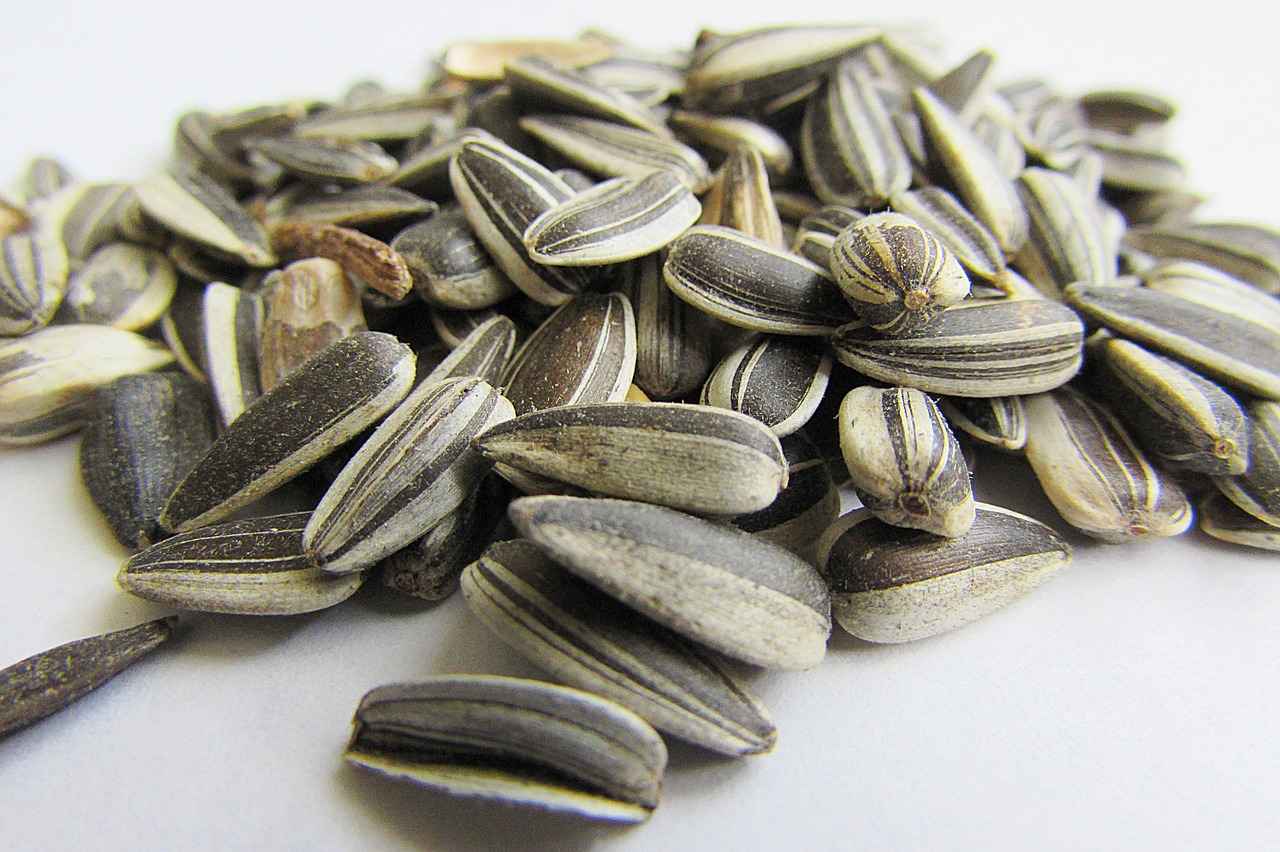
Farmers’ Markets: Fresh and Local Options
When it comes to sourcing chia seeds, farmers’ markets offer a unique and enriching experience. These markets not only provide access to locally sourced chia seeds, but they also foster a connection between consumers and the farmers who cultivate these nutritious seeds. Engaging with local vendors can yield valuable insights into the farming practices that influence the quality and sustainability of the products you purchase.
Farmers’ markets are a treasure trove for health-conscious shoppers looking for fresh produce and specialty items like chia seeds. Here are several reasons why you should consider visiting your local farmers’ market:
- Freshness: Products sold at farmers’ markets are often harvested just before the market day, ensuring maximum freshness and flavor.
- Local Economy Support: Purchasing from local farmers helps stimulate the local economy and supports sustainable farming practices.
- Transparency: Engaging directly with farmers allows you to ask questions about their growing methods, pesticide use, and sustainability practices.
When you visit a farmers’ market, you can expect a vibrant atmosphere filled with colorful produce, artisanal goods, and friendly vendors. Here’s what to keep in mind:
- Variety: You may find different varieties of chia seeds, including black and white seeds, each with its own unique flavor profile.
- Sampling: Many vendors offer samples, allowing you to taste before you buy. This is especially useful for products like chia seeds that can vary in flavor.
- Seasonal Offerings: Availability may vary based on the season, so it’s worth visiting regularly to discover new products.
One of the most rewarding aspects of shopping at farmers’ markets is the opportunity to engage with local vendors. Here are some tips for making the most of these interactions:
- Ask Questions: Don’t hesitate to inquire about the farming practices, such as whether the seeds are grown organically or how they are harvested.
- Learn About Recipes: Vendors often have tips on how to incorporate chia seeds into your diet, from smoothies to baked goods.
- Build Relationships: Establishing a rapport with local farmers can lead to valuable insights and recommendations for future purchases.
Choosing locally sourced chia seeds comes with several health benefits:
- Higher Nutritional Value: Freshly harvested seeds retain more nutrients, including omega-3 fatty acids, fiber, and antioxidants.
- Less Environmental Impact: Local sourcing reduces the carbon footprint associated with transporting goods over long distances.
- Community Connection: Supporting local agriculture helps foster a sense of community and encourages sustainable farming practices.
To ensure you’re getting the best quality chia seeds at farmers’ markets, consider the following tips:
- Inspect Packaging: Check for clear labeling that indicates whether the seeds are organic and non-GMO.
- Look for Freshness: Ask vendors about the harvest date to ensure you’re purchasing fresh seeds.
- Compare Prices: Prices can vary, so it’s wise to shop around and compare quality and cost among different vendors.
By choosing to buy chia seeds from farmers’ markets, you not only support local agriculture but also gain access to high-quality, fresh products that can enhance your diet. The experience of engaging with local vendors adds a personal touch to your shopping, making it a worthwhile endeavor.
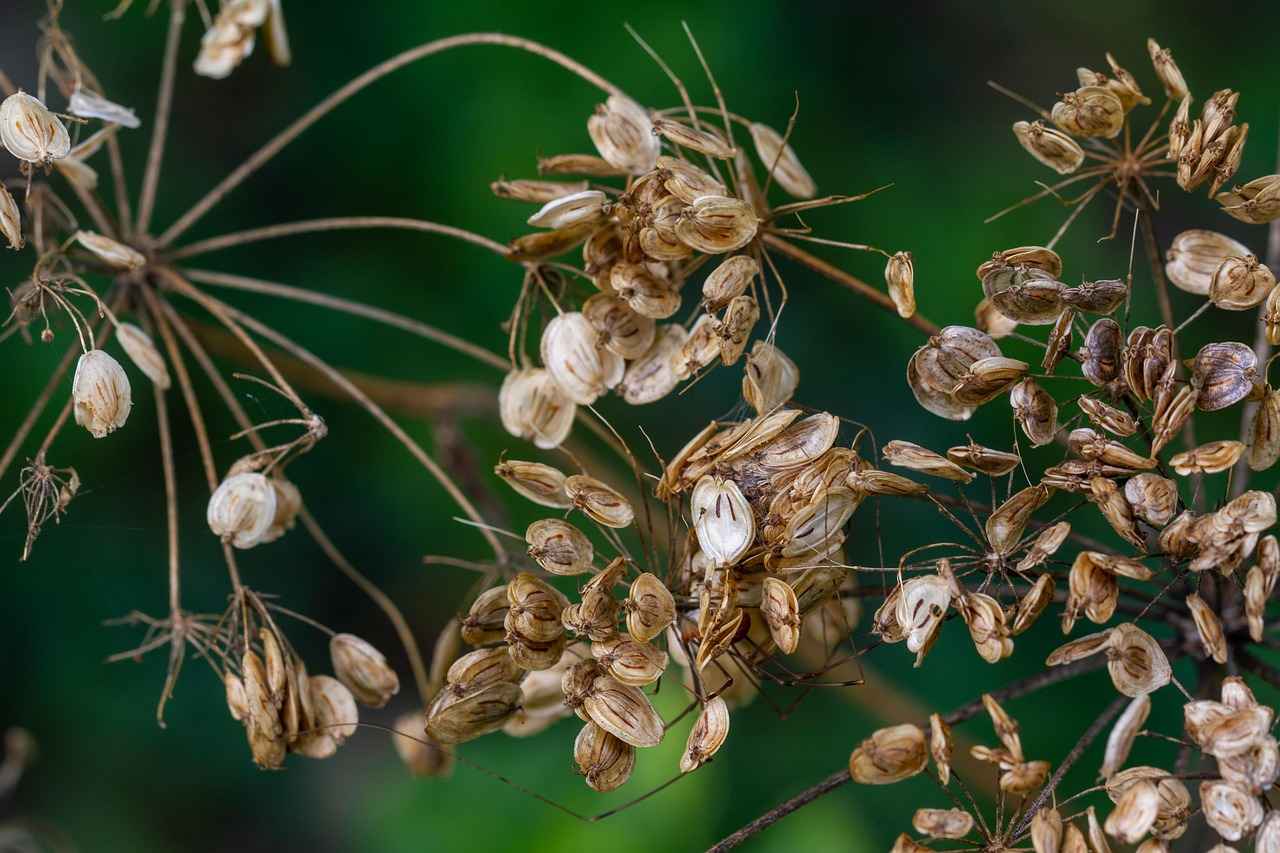
Specialty Health Stores: Expert Guidance
When it comes to purchasing chia seeds, specialty health stores stand out as a valuable resource for consumers seeking expert guidance. These stores are not just retail outlets; they are hubs of knowledge where health enthusiasts can find a wide variety of products tailored to their specific needs. The staff at these establishments are often well-trained and possess extensive knowledge about the various brands, types, and preparation methods of chia seeds.
Why Choose Specialty Health Stores?
One of the primary advantages of shopping at specialty health stores is the personalized recommendations provided by knowledgeable staff. Unlike larger retail chains, where employees may have limited training in health foods, specialty store staff are typically passionate about nutrition and wellness. They can assist customers in navigating the multitude of chia seed options available, helping to identify the best products based on individual dietary preferences and health goals.
Understanding Chia Seed Varieties
In specialty health stores, customers can find a range of chia seed varieties, including organic, non-GMO, and flavored options. The staff can explain the differences between black and white chia seeds, and how each variety may offer unique benefits. For instance, some individuals may prefer black chia seeds for their slightly nuttier flavor, while others might opt for white chia seeds for their aesthetic appeal in recipes.
Preparation Methods
Moreover, the staff’s expertise extends beyond just product selection. They can provide valuable insights into preparation methods for chia seeds. Whether you’re looking to incorporate them into smoothies, baked goods, or as a thickening agent in recipes, the staff can offer practical tips and creative ideas. This personalized interaction enhances the shopping experience, making it more informative and enjoyable.
Quality Assurance
Another benefit of shopping at specialty health stores is the assurance of quality. These stores often curate their product selection, focusing on high-quality brands that prioritize sustainability and ethical sourcing. Staff members can guide customers on how to read labels effectively, ensuring that they choose products free from additives and preservatives.
Community Engagement
Additionally, many specialty health stores engage with their local communities by hosting workshops and events focused on nutrition and health. These initiatives allow customers to learn more about the benefits of chia seeds and other superfoods directly from experts. Such community involvement fosters a sense of belonging and encourages customers to make informed choices about their health.
Conclusion
In summary, specialty health stores provide a unique shopping experience for those looking to purchase chia seeds. With knowledgeable staff ready to offer personalized recommendations, insights into preparation methods, and a commitment to quality, these stores enhance the overall shopping experience. For anyone interested in incorporating chia seeds into their diet, visiting a specialty health store is a step towards making informed and health-conscious decisions.

Choosing the Right Type of Chia Seeds
is crucial for maximizing the health benefits and culinary versatility of this superfood. With various options available, understanding the differences between black and white chia seeds, as well as organic versus conventional varieties, can greatly influence your purchasing decisions.
Both black and white chia seeds come from the same plant, Salvia hispanica, and offer similar nutritional profiles. However, there are subtle differences that might appeal to different preferences:
- Flavor: Some users report that black chia seeds have a slightly nuttier flavor, while white chia seeds are often described as milder.
- Aesthetic Appeal: White chia seeds may blend better in lighter-colored dishes, making them visually appealing in recipes like smoothies and puddings.
- Texture: Both types have a similar texture when soaked; however, the black seeds tend to be more commonly found in stores.
When deciding between organic and conventional chia seeds, consider the following factors:
- Health Benefits: Organic chia seeds are cultivated without the use of synthetic pesticides or fertilizers, making them a safer choice for health-conscious consumers.
- Environmental Impact: Choosing organic supports sustainable farming practices that are better for the environment.
- Cost Consideration: Organic seeds typically come at a higher price point, but many consumers believe the benefits justify the cost.
Another important consideration is whether to purchase whole or ground chia seeds. Each form has its own advantages:
- Whole Chia Seeds: These seeds maintain their natural structure and provide a satisfying crunch. They are perfect for adding texture to salads, smoothies, and baked goods.
- Ground Chia Seeds: Grinding chia seeds can enhance their digestibility and nutrient absorption. They can be easily incorporated into smoothies, oatmeal, or used as an egg substitute in vegan recipes.
Understanding the flavor profiles of different chia seed types can enhance your culinary experience. For instance, black chia seeds may be preferred in recipes where a more pronounced flavor is desired, while white chia seeds can be used in lighter dishes for a subtle touch.
Moreover, chia seeds can absorb liquid and form a gel-like consistency, making them a fantastic addition to puddings, jams, and even as a thickening agent in soups.
Ultimately, the choice between black and white chia seeds, organic and conventional varieties, and whole versus ground forms comes down to personal preferences, dietary needs, and budget considerations. By understanding these differences, you can make informed decisions that align with your health goals and culinary aspirations.
Organic vs. Non-Organic: What’s the Difference?
When it comes to choosing chia seeds, one of the most significant decisions consumers face is whether to opt for organic or non-organic varieties. This choice can greatly impact not only the quality of the seeds but also your overall health and environmental considerations.
Organic chia seeds are cultivated without the use of synthetic pesticides, herbicides, or fertilizers. This method of farming not only promotes a healthier product but also supports sustainable agricultural practices that benefit the environment. Many health-conscious consumers prefer organic options due to their perceived purity and safety.
- Health Benefits: Organic seeds are less likely to contain chemical residues, making them a safer choice for you and your family.
- Nutritional Value: Studies suggest that organic chia seeds may have higher antioxidant levels compared to their non-organic counterparts.
- Environmental Impact: Organic farming practices contribute to soil health and biodiversity, which are crucial for sustainable agriculture.
Non-organic chia seeds are typically produced using conventional farming methods, which may involve the application of synthetic chemicals. While these seeds are often more affordable, they can carry potential risks associated with pesticide residues.
While non-organic chia seeds are generally considered safe for consumption, there is a concern about the long-term health effects of consuming products with chemical residues. Regular exposure to pesticides has been linked to various health issues, which raises questions about the safety of non-organic options.
One of the primary reasons consumers choose non-organic chia seeds is the cost. Organic seeds can be significantly more expensive, which may deter some buyers. However, many argue that the health benefits and environmental advantages of organic products justify the higher price.
Regardless of whether you choose organic or non-organic chia seeds, it’s essential to know how to identify quality seeds. Here are some tips:
- Check the Packaging: Look for seeds that are packaged in opaque containers to protect them from light, which can degrade their quality.
- Look for Certifications: For organic seeds, ensure they have a recognized organic certification to guarantee their authenticity.
- Read Reviews: Customer feedback can provide insights into the quality and flavor of the seeds you are considering.
Ultimately, the choice between organic and non-organic chia seeds depends on your personal values, health considerations, and budget. By understanding the differences and benefits of each type, you can make an informed decision that aligns with your lifestyle.
Whole vs. Ground Chia Seeds: Which Should You Choose?
When it comes to incorporating chia seeds into your diet, one of the most common questions is, “Should I choose whole or ground chia seeds?” Both forms have their unique benefits, and understanding these can help you make an informed decision that aligns with your dietary needs and preferences.
Whole chia seeds are known for their distinct crunchy texture, making them a popular choice for those who enjoy a bit of crunch in their meals. They are rich in omega-3 fatty acids, fiber, and protein, contributing to a balanced diet. When soaked in liquid, whole chia seeds swell and form a gel-like consistency, which can be a delightful addition to smoothies, puddings, or even as a topping for yogurt. This unique property not only enhances the texture of dishes but also provides a sense of fullness, making them an excellent choice for weight management.
On the other hand, ground chia seeds are often easier to digest. Grinding the seeds breaks down their tough outer shell, allowing for better nutrient absorption in the body. This can be particularly beneficial for individuals with digestive issues or those who find it challenging to consume whole seeds. Ground chia seeds can be seamlessly incorporated into a variety of recipes, such as baked goods, smoothies, and even savory dishes, without altering the flavor significantly. They can also serve as a natural thickening agent due to their gelling properties when mixed with liquids.
Your choice between whole and ground chia seeds may depend on various factors, including personal preference, dietary restrictions, and intended use. If you enjoy the crunch and want to add texture to your meals, whole chia seeds might be the perfect fit. Conversely, if you are looking for a more versatile option that can easily blend into different recipes, ground chia seeds could be the way to go.
- Whole Chia Seeds: Use them in overnight oats, sprinkle over salads, or mix into smoothies for added crunch.
- Ground Chia Seeds: Add them to baked goods, mix into smoothies for a nutrient boost, or use as a thickener in soups and sauces.
| Type | Calories (per 1 oz) | Fiber (g) | Omega-3 (g) |
|---|---|---|---|
| Whole Chia Seeds | 138 | 10.6 | 5.1 |
| Ground Chia Seeds | 138 | 10.6 | 5.1 |
As shown in the table, the nutritional content remains largely the same between whole and ground chia seeds. The main difference lies in how your body processes them. If you’re looking for a quick energy boost or a convenient way to enhance your meals, consider alternating between both forms to reap the benefits of each.
Ultimately, whether you choose whole or ground chia seeds, incorporating them into your diet can offer numerous health benefits. Experiment with both types to discover what works best for your taste and lifestyle.
Frequently Asked Questions
- What are the health benefits of chia seeds?
Chia seeds are packed with nutrients! They are rich in omega-3 fatty acids, fiber, and antioxidants, making them a fantastic addition to a healthy diet. These tiny seeds can help improve digestion, support heart health, and even boost energy levels.
- Can I find chia seeds at my local grocery store?
Absolutely! Many local grocery stores carry chia seeds, often in the health food aisle. It’s a great way to check for freshness and quality before making a purchase. Stores like Whole Foods and big-box retailers like Walmart usually have a good selection.
- Are organic chia seeds worth the extra cost?
While organic chia seeds can be pricier, they are grown without synthetic pesticides or fertilizers. If you’re health-conscious or concerned about chemical residues, choosing organic might be the better option for you!
- How do I incorporate chia seeds into my diet?
There are so many fun ways to use chia seeds! You can sprinkle them on smoothies, mix them into yogurt, or even use them as a thickening agent in recipes. They can absorb liquid and create a gel-like consistency, making them perfect for puddings!
- What’s the difference between whole and ground chia seeds?
Whole chia seeds provide a nice crunch and are a great source of fiber, while ground chia seeds are easier to digest and can be seamlessly blended into recipes. Your choice really depends on your personal preference and dietary needs!
